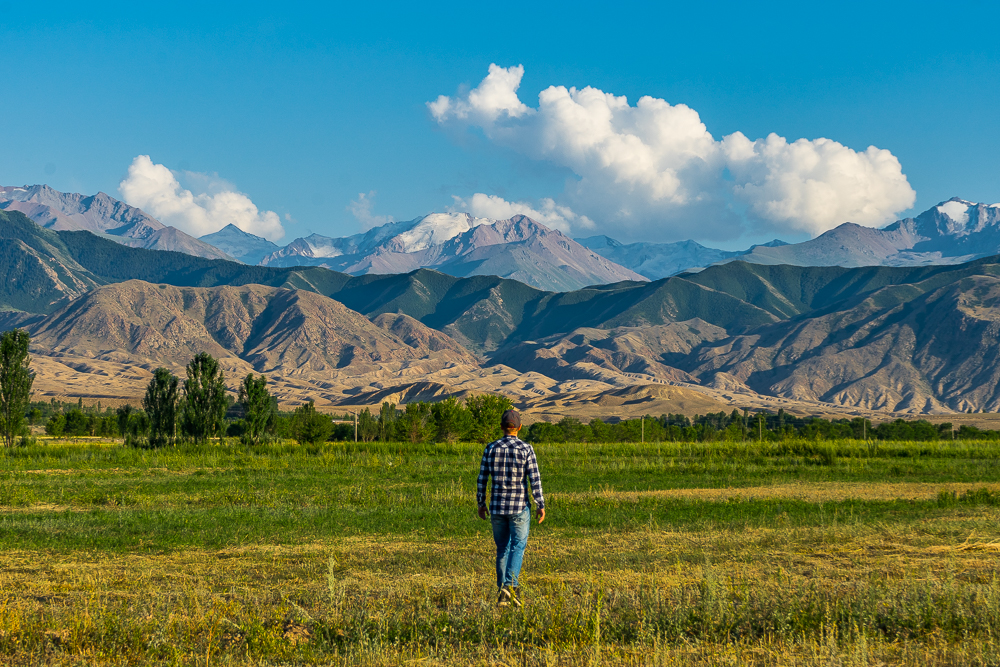With its beautiful but challenging mountains, diverse culture and rich cuisine Kyrgyzstan became popular amongst adventurous travelers in recent years. After more than 2 weeks in the country I put together my personal tips of things to do when trekking in Kyrgyzstan – from the capital Bishkek to the most eastern settlement Jyrgalan.
When I got asked by USAID and Discover Kyrgyzstan at the beginning of the year if I'd be up for trekking in Kyrgyzstan (to produce a video and help promoting tourism in the region) I had to do a bit of research as I didn't know much about the country. The more I read the more I was convinced that this is my kind of destination: fairly unknown, great trekking (80% of the country are mountains), interesting culture and a bit challenging to travel.
After the time I spent trekking, horseback riding, camping, building yurts, meeting locals and of course: eating in Kyrgyzstan I can only recommend it to all the adventurous travelers out there – even though the infrastructure and logistics can be quite challenging at times. But isn't this the true taste of travel we are searching for more and more these days?
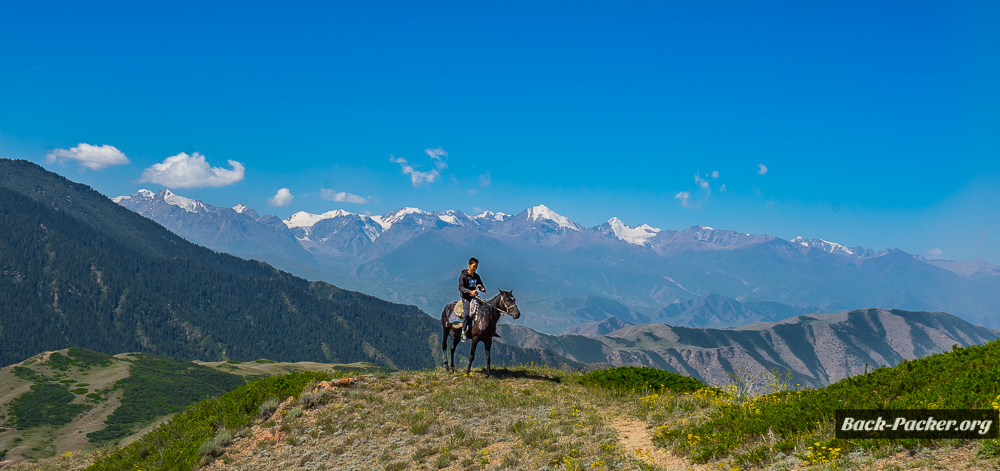
1) Trekking in the Tian Shan mountains – e.g. Boz Uchuk Trek
This is what we are here for, right? The mountains of Kyrgyzstan are a true mecca for outdoor lovers. Beside the giants such as Jengish Chokusu (7439m) for experienced mountaineers there are numerous trekking routes for average trekkers, mostly of medium difficulty.
The 3 day lasting Boz Uchuk – Jyrgalan trek I took on is a great example. The route takes you through 3 valleys and over 2 passes to 2 secluded mountain lakes with impressive panoramic views along the way. You can find an in-depth description of the trek here.
The city of Karakol is the starting point for trekking in the region – the local tourist office will provide you with all info needed (routes, guides incl. porters and chef) for your very own adventure. You can book this particular trek through Destination Jyrgalan for a very good price. Please be aware that trails are mostly unmarked or not visible, therefore I'd recommend hiring a guide for less popular hikes such as the Boz Uchuk trek.
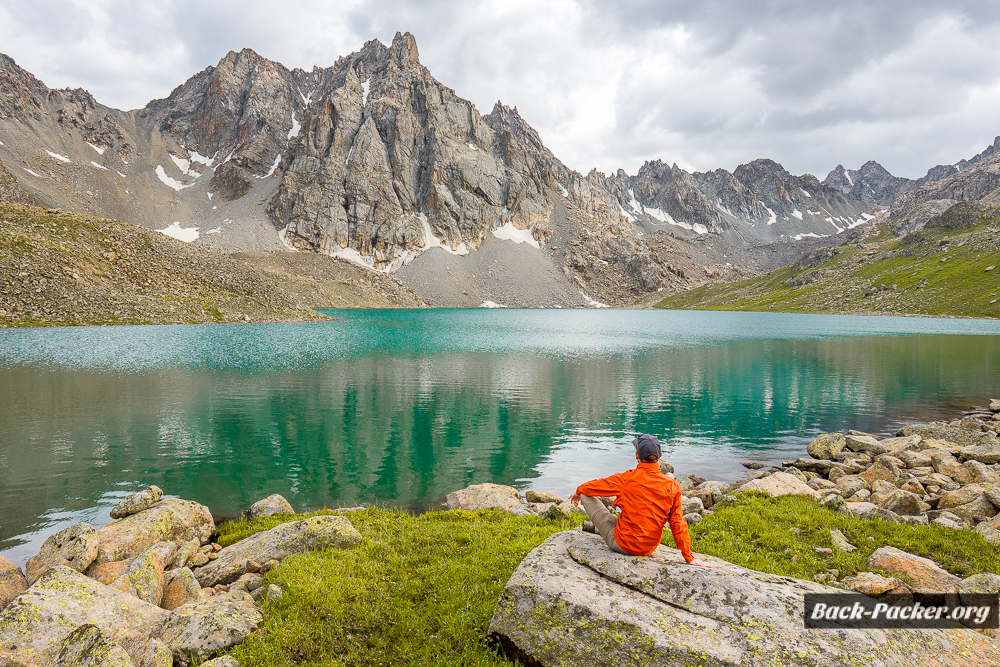
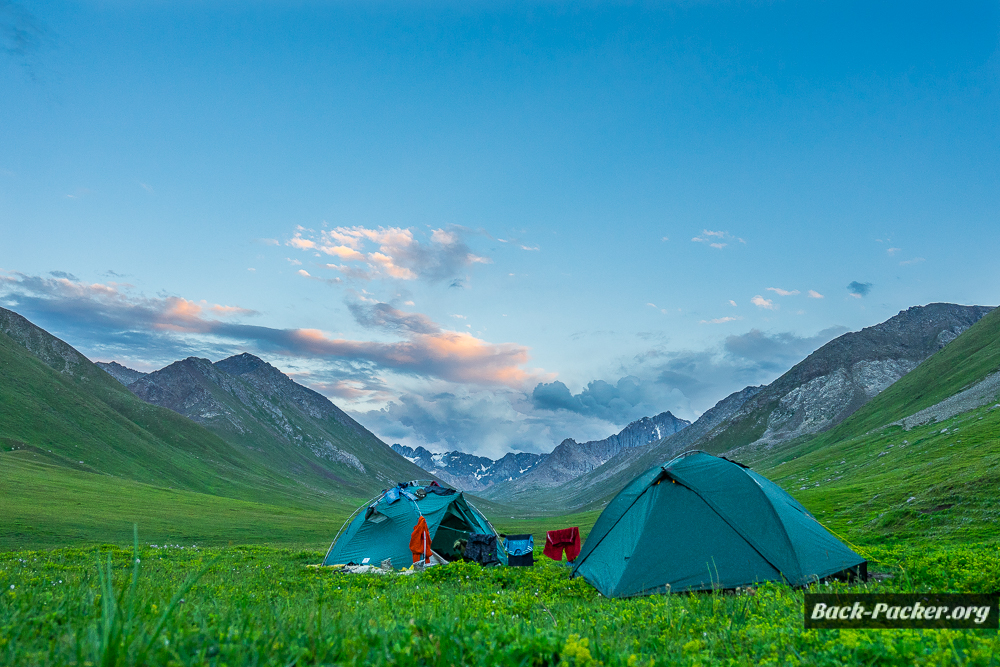
2) Horse trekking – e.g. in Jyrgalan or Bokonbaevo
Horses are an important part of Kyrgyz culture. Locals usually grow up with horses being a part of their family and are experienced horseman at a very young age. Therefore horse trekking is a common activity almost everywhere in the country – even multi day horse treks are possible.
As I'm anything but an experienced horseman myself I only did day tours. While my first horse trek took place right next to the giant Issyk Kul lake (near Bokonbaevo), I had the chance to explore the very remote Jyrgalan Valley on my second one. In matters of landscape I can only recommend to go for the latter (see 7).
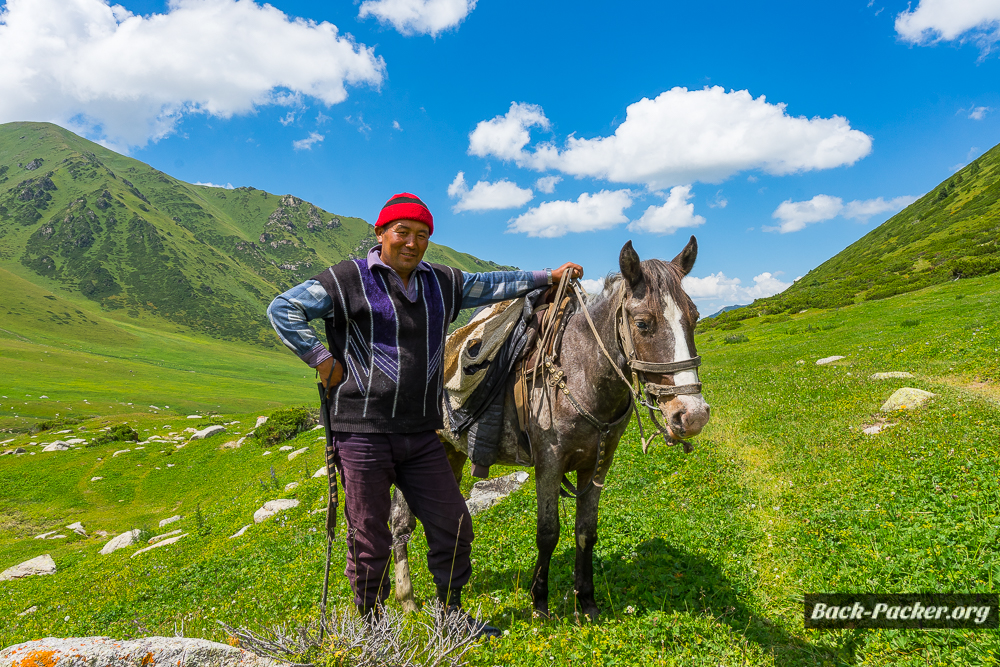
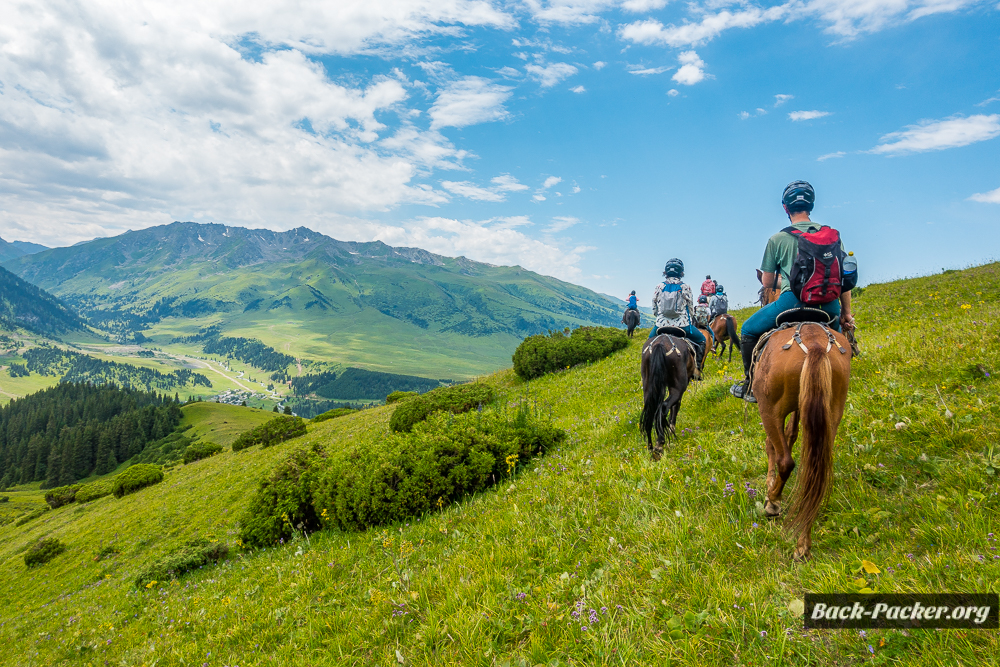
3) Issyk Kul – World's second largest saline lake
Despite the fact that Kyrgyzstan is a landlocked country it still has access to a huge salty body of water which is also the world's second largest saline lake. Definitely a must see when you are coming for trekking in Kyrgyzstan as you pass by the lake on your way to Karakol.
The lake has several beaches in the south as well as in the north and is very popular by locals during the summer months. You should plan at least a short stop by the lake on your way to Karakol.

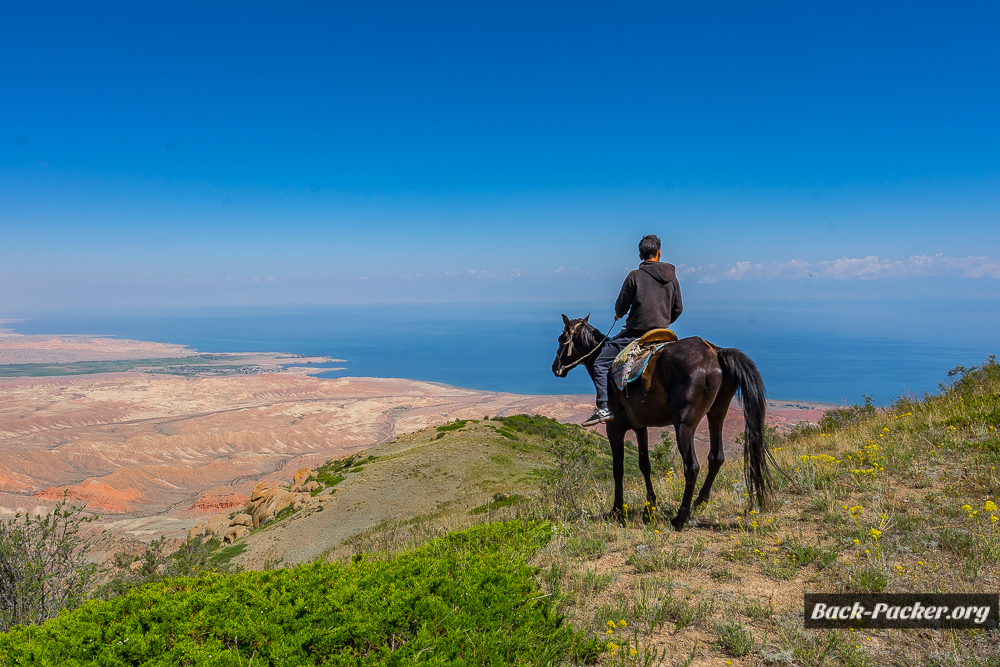
4) Bishkek: modern Kyrgyzstan & monumental architecture
The capital will most likely be your first and last stop on your trip to Kyrgyzstan. I recommend to have at least a 1 day stopover to take in the contrast of the life in the capital to the life in rural Kyrgyzstan as well as checking out the monumental architecture – great spots for photography!
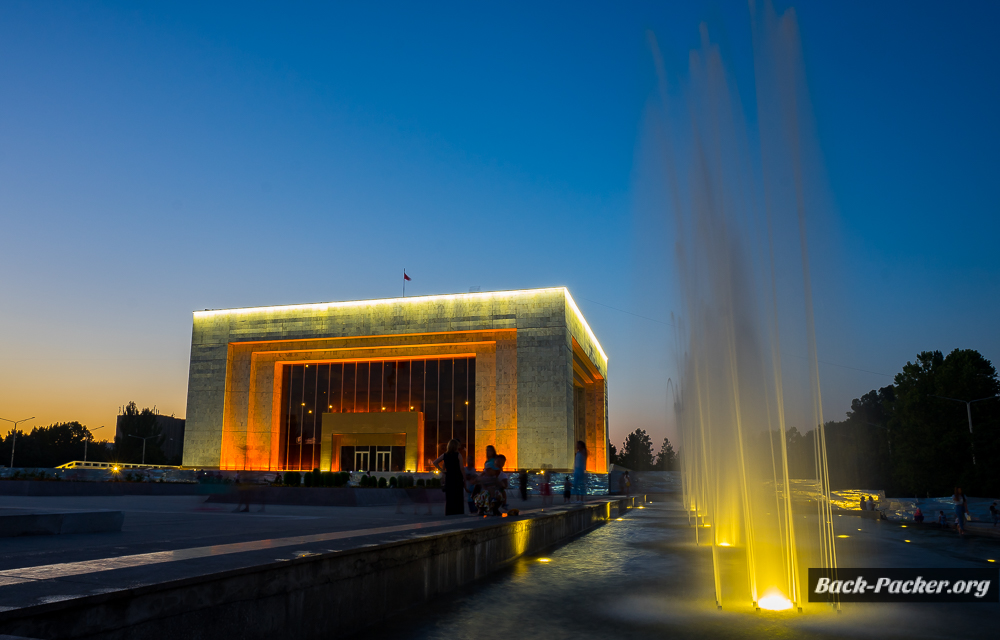
5) Spend a night in a Yurt Camp
When visiting Kyrgyzstan you shouldn't miss out on spending a night in a traditional, very cozy Yurt – here it is called a “Boz Uj”.
In Kyrgyzstan you can find several kinds of Yurt Camps – some are more luxurious than others, the yurts differ in size and interior. I stayed at the more traditional Almaluu Yurt Camp near the shores of the Issyk Kul lake which I can highly recommend as the yurts were comfy and the food was simply amazing (though facilities were a bit more basic).
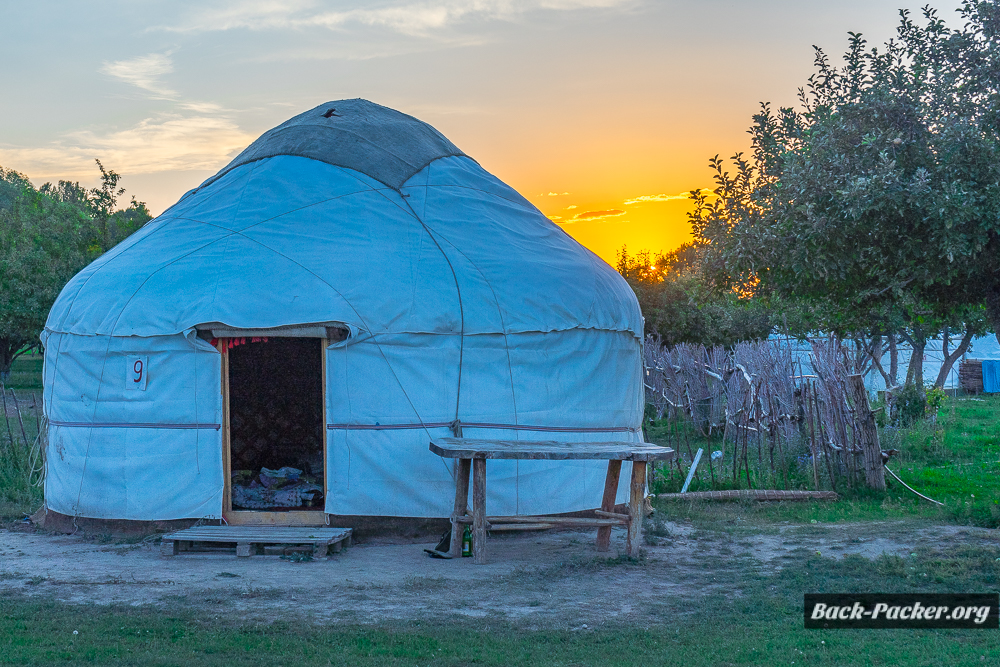
6) Take part in a Dungan family dinner
Kyrgyzstan is home to many tribes and cultures. The Dungan are a group of Muslim people of Chinese origin who have taken refuge in Kyrgyzstan (especially in the area around Karakol) and are famous for their rich, delicious cuisine.
In Karakol you have the chance to take part in a traditional Dungan family dinner which can be organized through Destination Karakol. Highly recommended for your last dinner before trekking in Kyrgyzstan (you won't leave hungry!) – it's like the pasta dinner you have the night before a marathon 😉
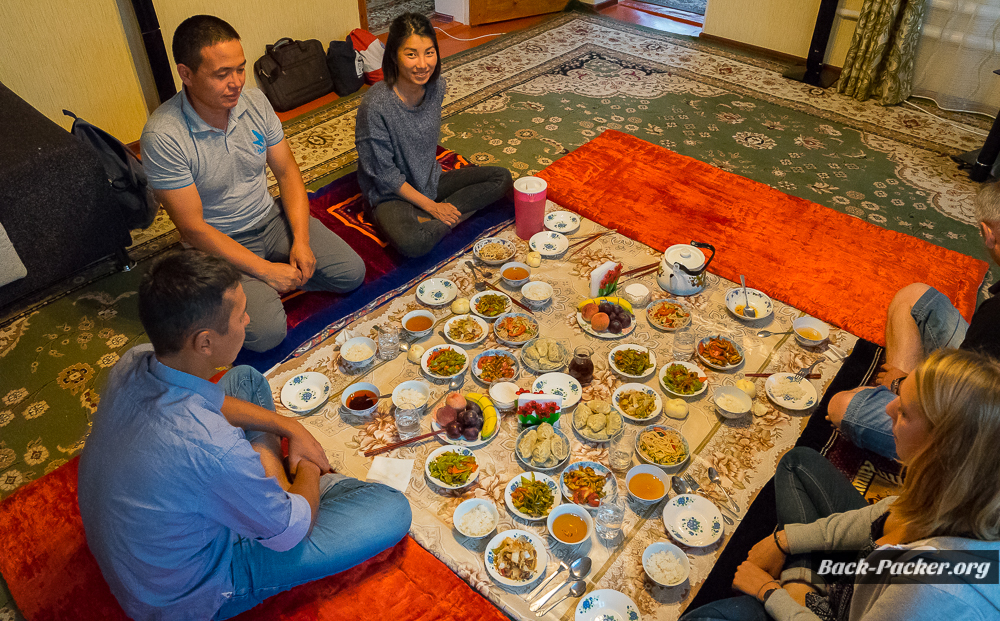
7) Jyrgalan Valley – experience authentic Kyrgyzstan
When doing your research for trekking in Kyrgyzstan you won't find much about the Jyrgalan Valley which is a true hidden gem where you get the chance to experience the authentic village life.
Jyrgalan is the most eastern village of the country and was popular for coal mining in the past. After the dissolution of the Soviet Union the region plunged into an economic crisis and many of the inhabitants didn't see any other option than to move elsewhere.
A few years ago a group of local families teamed up, built guesthouses, marked hiking trails and started offering several activities in combination with authentic lodging in this beautiful area. Also the cuisine is truly authentic: localy farmed and freshly prepared – if you like you can even try fermented horse milk, a true Kyrgyz delicacy.

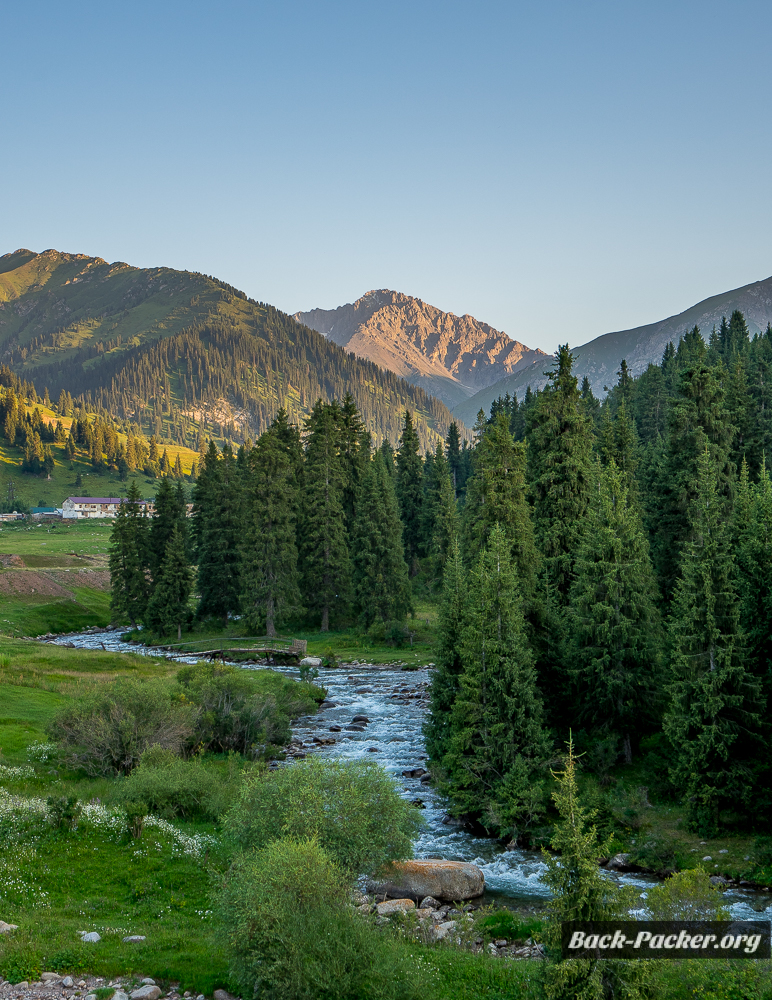
8) Barskoon valley & Barskoon waterfall
The Barskoon Valley is another great place for trekking in Kyrgyzstan. One of the highlights in the area is the multi-step Barskoon waterfall.
When taking on the half day trek to the highest cascade you need to tackle a gain of 700m – make sure to bring good hiking boots as the path is very steep and slippery at some parts!
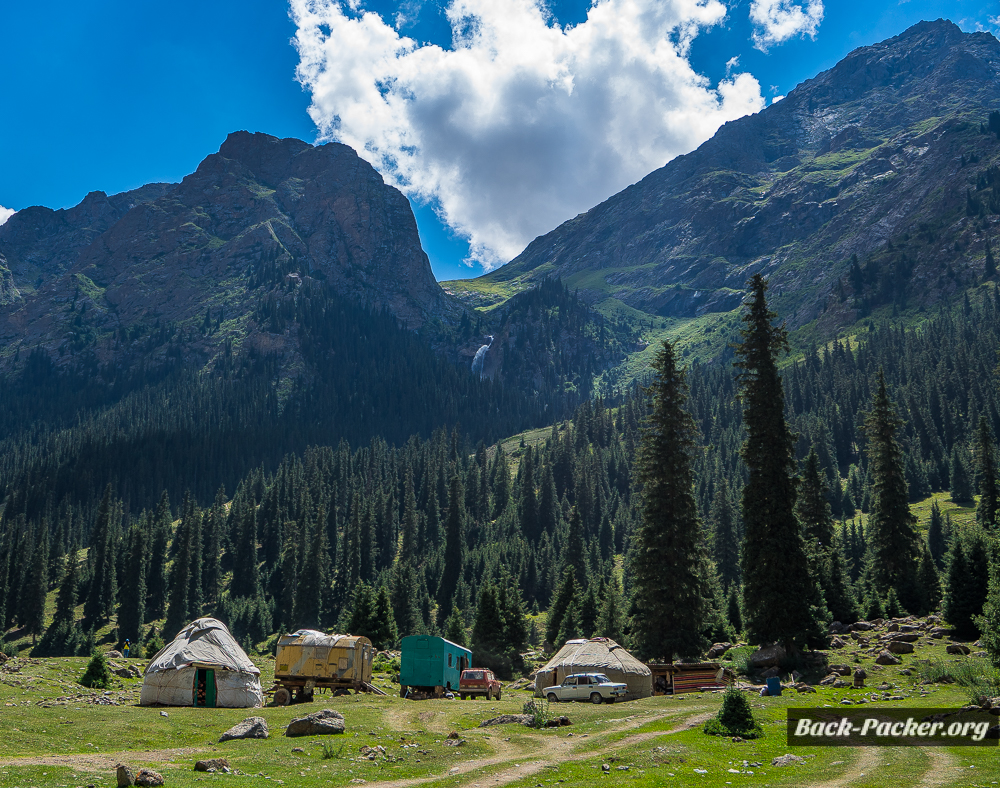
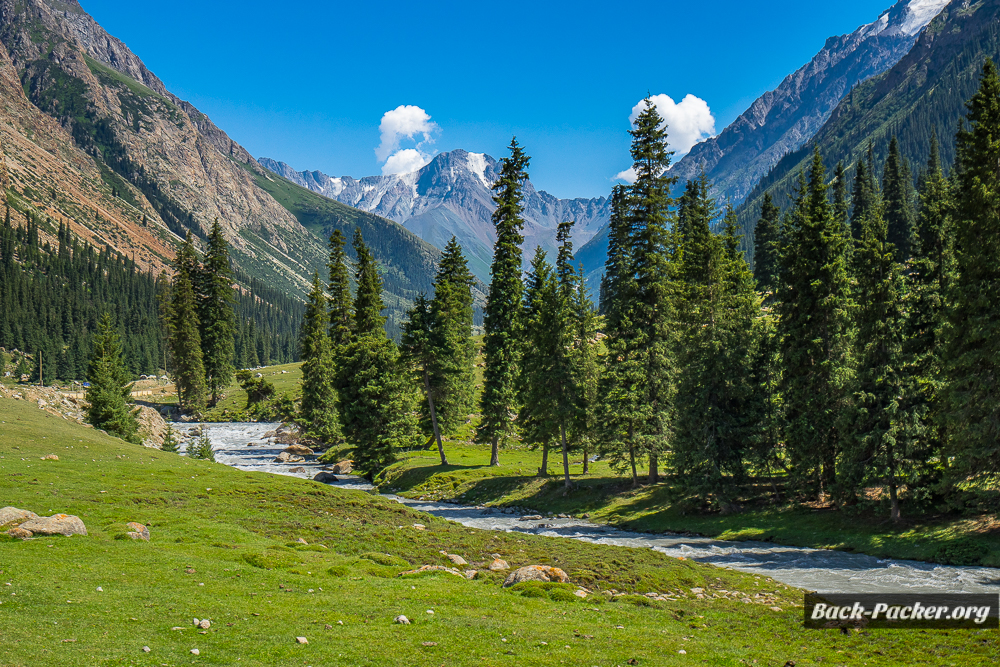
9) Food Tour in Karakol
If you want to get to get a taste of the variety the Kyrgyz cuisine has to offer you should go on a food tour offered by Destination Karakol. The tour has 5 stops and introduces you to dishes from different cultural backgrounds – make sure to come hungry!
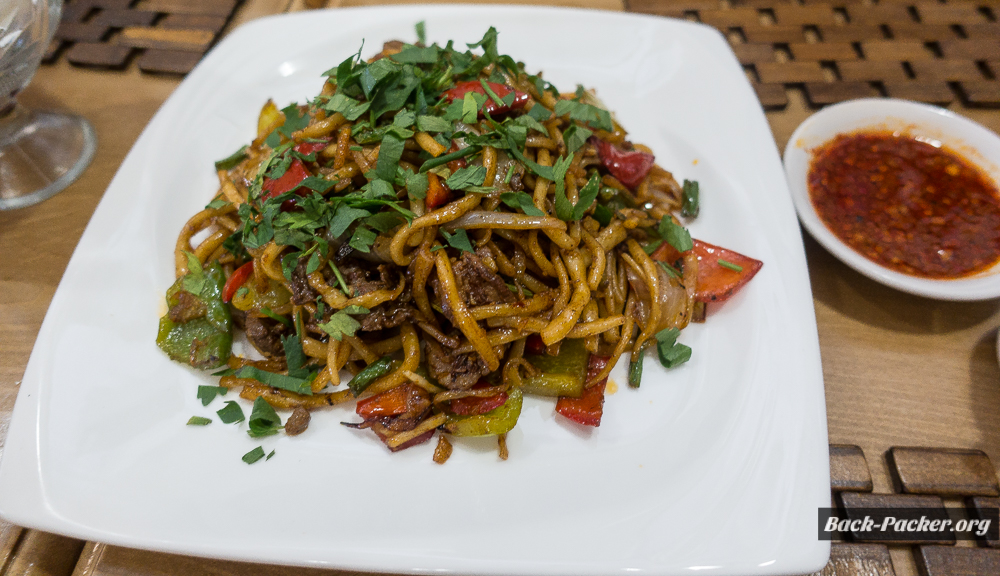
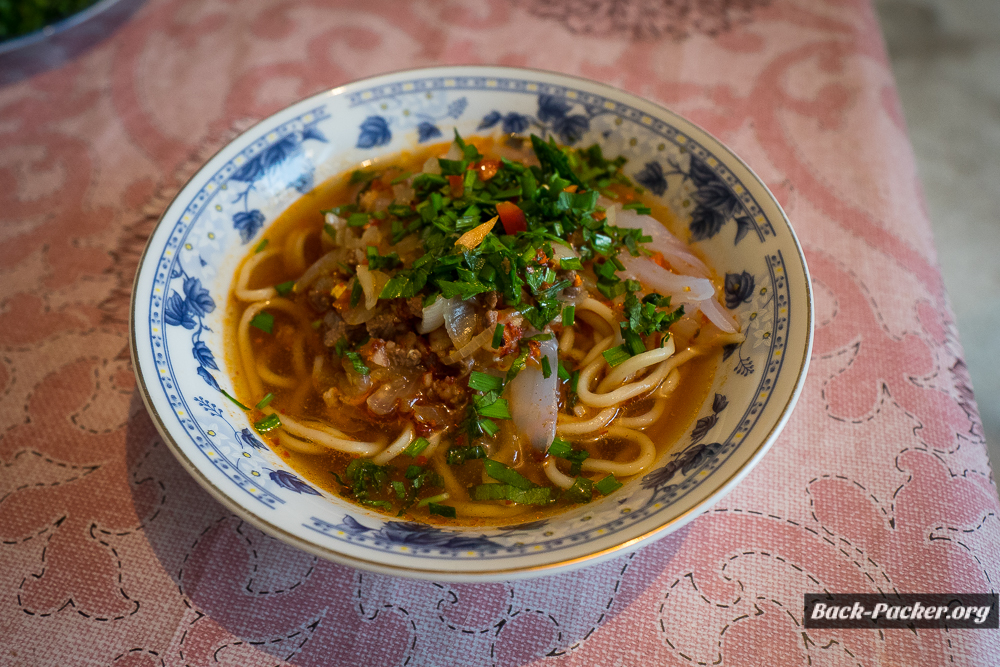
10) Yurt building workshop
Did you know that most of the big yurts you get to see on your travels through the country are still handmade by families in their backyard? Learn more about the process and get your hands on assembling one of those yurts yourself in a yurt building workshop in Kyzyl-Tuu which is one of the best spots for this in the whole country.
Kyzyl-Tuu is located between Bishkek and Bokonbaevo, the person to contact beforehand is named Tulosun – make sure to request a „Yurt building tour“ via E-Mail!
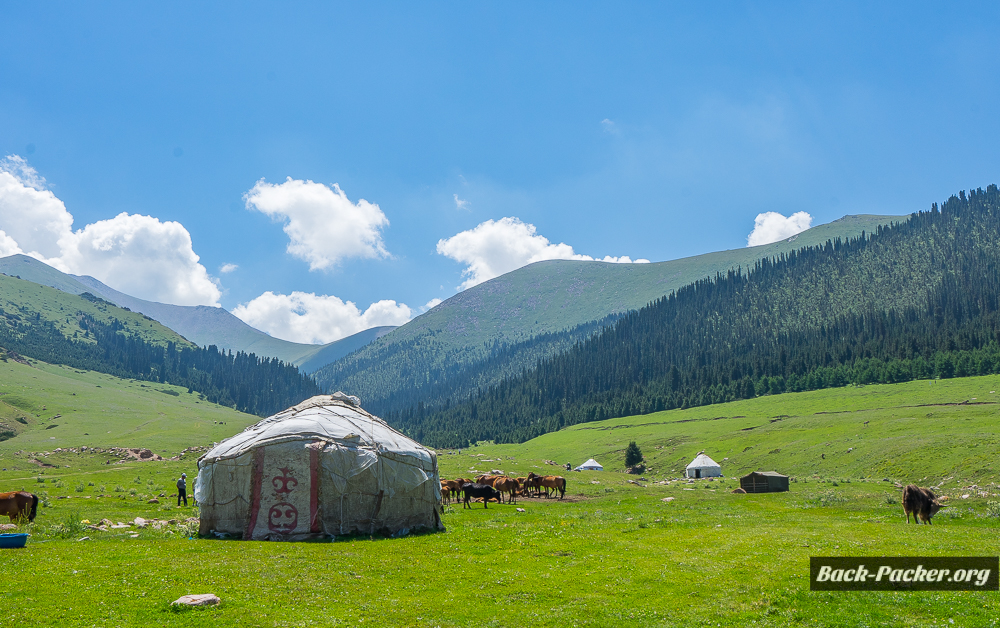
Video: Things to do & Trekking in Kyrgyzstan
As usual I produced a video about my time in Kyrgyzstan with the support of USAID in order to help developing the local tourism industry – beside trekking in Kyrgyzstan I show all the other activities mentioned in this article:
Get In & Accommodation
As I'm based in Hamburg, Germany I flew with Turkish Airlines via Istanbul to Bishkek. Another option would have been to fly with Aeroflot via Moskau. To get from Bishkek to Karakol a shared taxi for 10-15€ p.P. is the recommended option (I don't recommend minibuses as they are less safe due to risky drivers).
Alternatively you can setup a tailor made tour with a local driver – due to my tight schedule I went with the local tour operator CAT. Make sure to have a rest in Bishkek before you move on to Karakol as the drive takes between 6 and 8 hours.
In Bishkek -I stayed at the Shah Palace Hotel which is located in the city center and of western standards with free WiFi and breakfast included. It's a very solid choice: the rooms are modern, clean and quiet, the location is perfect for exploration of the capital!
In Bokonbayevo – i had a stopover and stayed at the Almaluu Yurt Camp next to the Issyk Kul lake (10min walking distance). The Yurts are traditional and very comfy, the food offered is very rich and delicious. Be aware that facilities are located outside (take a look at the video where I show you around the camp). The people who run the camp are lovely and the right contact to organize horseback riding, mountain biking or hiking in the region.
In Karakol – I also stayed in a Yurt camp but this time there was a separate building with bathrooms and hot showers. The Happy Nomads Yurt Camp offers big yurts with 5-6 beds but you can also rent the whole yurt if needed (good option for families!). Breakfast and free WiFi is included but you can also request to have dinner (additional charge). If you want to walk to the city center you need to factor in about 30mins.
In Jyrgalan – I was staying most of my time at the Alakol-Jyrgalan Guest House. Emil & Gulmira opened their B&B recently and put in a lot of time and passion. This goes for the rooms (mostly with bathroom ensuite) as well as for the rich traditional meals and the tours they offer. The WiFi is weak in this region which makes it the perfect place to have a digital detox and get to know the rural village life of Kyrgyzstan surrounded by beautiful nature.
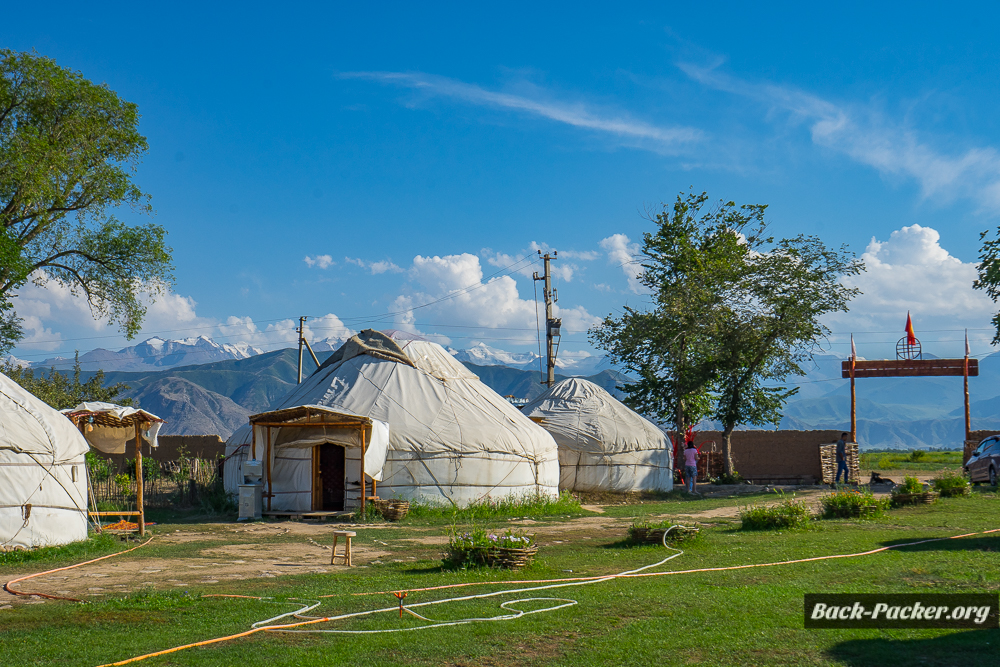
More tips for Trekking in Kyrgyzstan?
Have you been to Kyrgyzstan yourself? Do you have any recommendations and tips regarding Trekking in Kyrgyzstan you want to share with us? Feel free to put them into the comment section below!
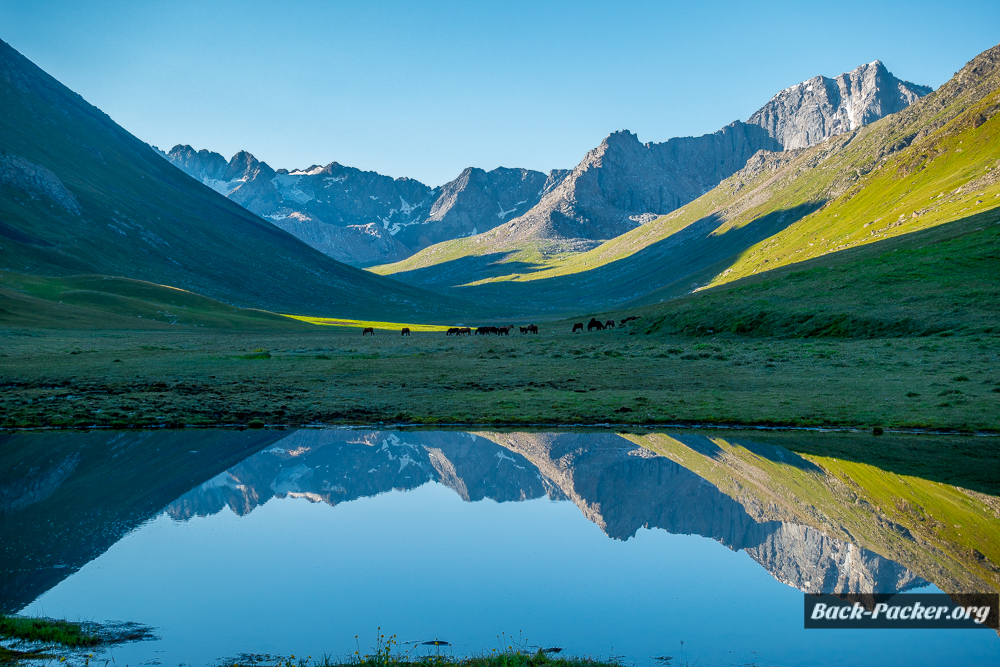
Disclaimer: As mentioned in the article this trip was made possible by the support of the American people through the United States Agency for International Development (USAID). The contents are the sole responsibility of the author and do not necessarily reflect the views of USAID or the United States Government.
All the recommendations, opinions, and ironic remarks are, as always, my own. This article contains affiliate links to Booking.com to allow you to book accommodation options listed here directly. For you, however, no extra costs are included!

